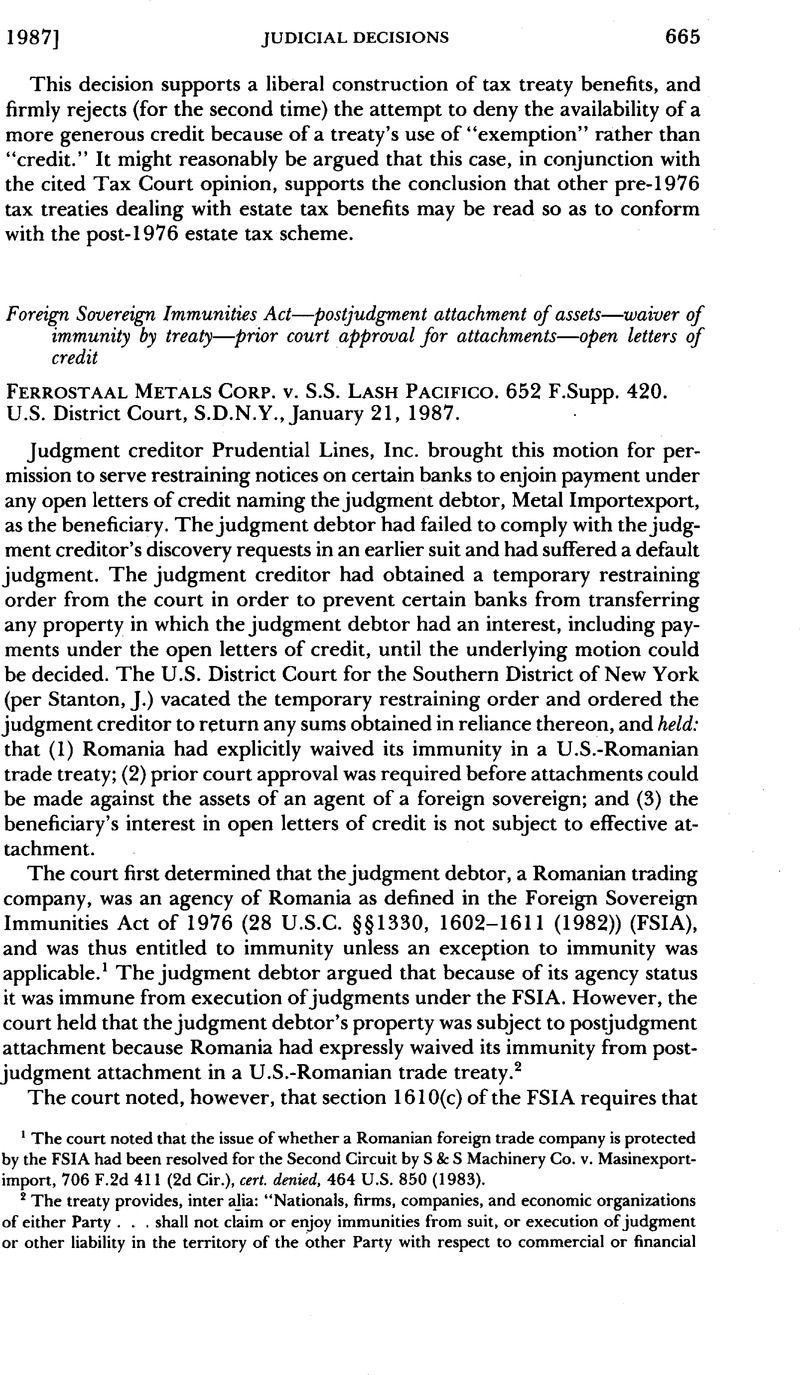No CrossRef data available.
Article contents
Ferrostaal Metals Corp. v. S.S. Lash Pacifico
Published online by Cambridge University Press: 27 February 2017
Abstract

- Type
- Judicial Decisions
- Information
- Copyright
- Copyright © American Society of International Law 1987
References
1 The court noted that the issue of whether a Romanian foreign trade company is protected by the FSIA had been resolved for the Second Circuit by S & S Machinery Co. v. Masinexport-import, 706 F.2d 411 (2d Cir.), cert, denied, 464 U.S. 850 (1983).
2 The treaty provides, inter alia: “Nationals, firms, companies, and economic organizations of either Party . . . shall not claim or enjoy immunities from suit, or execution of judgment or other liability in the territory of the other Party with respect to commercial or financial transactions. . . .” Agreement on Trade Between the United States and the Romanian Government, Apr. 2, 1975, Art. IV(2), 26 UST 2305, 2308–09, TIAS No. 8159.
Although not cited by this court, another court in the Southern District of New York recently found that the sovereign defendant had waived its jurisdictional immunity by signing the Convention on the Settlement of Investment Disputes Between States and Nationals of Other States, done Mar. 18, 1965, 17 UST 1270, TIAS No. 6090, 575 UNTS 159. Although immunity from execution was expressly not waived under the Convention, the court found that jurisdictional immunity had been waived. However, it refused to authorize execution against assets to be collected as taxes due to Liberia, including funds to be retained by a U.S. corporation as fees for collecting the taxes. See Liberian Eastern Timber Corp. v. Liberia, 650 F.Supp. 73 (S.D.N.Y. 1986).
3 “Nunc pro tunc” describes the court’s inherent power to make its record speak the truth, i.e., to record what was actually done but not recorded. See Black’s Law Dictionary 964 (5th ed. 1979).
4 Reibor Int’l Ltd. v. Cargo Carriers (KACZ-CO.) Ltd., 759 F.2d 262, 266, 268 (2d Cir. 1985).
5 Diakan Love, S.A. v. Al-Haddad Bros. Enterprises, 584 F.Supp. 782, 784 (S.D.N.Y. 1984).
6 See In re North Shore & Central Illinois Freight Co., 30 Bankr. 377 (Bankr. N.D. 111. 1983); In re Planes, Inc., 29 Bankr. 370 (Bankr. N.D. Ga. 1983); In re M.J. Sales & Distributing Co., 25 Bankr. 608 (Bankr. S.D.N.Y. 1982). But see In re Twist Cap, Inc., 1 Bankr. 284 (Bankr. D. Fla. 1979).
7 652 F.Supp. 420, 425.




